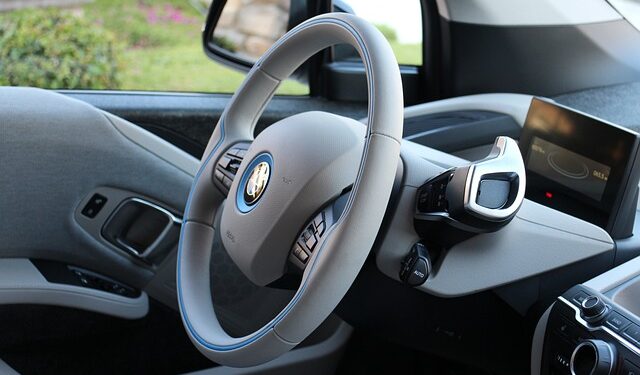- Keir Starmer’s government has implemented more green reforms than the Conservatives ever did, including a promise to ban the sale of new petrol cars by 2030 and accelerate the uptake of electric vehicles (EVs).
- The House of Lords Environment and Climate Change Committee has described this target as “essential” for the UK to achieve its net zero emissions goal by 2050.
- Companies like Dahua Technology and Siemens can offer solutions to address the barriers that may hinder progress in achieving EV uptake targets.
Twelve months ago, the UK’s green reputation was faltering. Rishi Sunak’s government had performed a series of notable U-turns on its decarbonisation pledges.
When the United Nations Climate Ambition Summit came around, the UK was notably absent – a surprising decision for a founding member of the coalition. In May, the High Court ruled that the Conservatives’ plans were in breach of the Climate Change Act 2008 and were therefore unlawful.
With lacklustre emissions plans that did little to inspire confidence, the country’s commitment to a more sustainable and clean future was seriously in doubt.
One general election later, things have changed. The new government has made more green reforms than Sunak did in his entire premiership. In just the first 100 days of the Labour administration, the UK has made history by becoming the first G20 nation to abandon coal power.
In addition, Keir Starmer’s government has committed to banning the sale of new petrol cars by 2030, aiming to accelerate the adoption of EVs. This reinstates a target that the Conservatives had previously shelved, a decision the House of Lords Environment and Climate Change Committee has described as “essential” for the UK to achieve its net zero emissions goal by 2050.
In a recent report, the Committee indicated that surface transport is the highest-emitting sector in the country, with passenger cars accounting for over half of these emissions. It further stated that life-cycle assessments of EVs prove they can significantly reduce emissions while also improving air quality.
Despite this, data reveals that EVs only make up 3% of all cars currently on UK roads, suggesting that for the government’s plan to succeed, significant action is needed, and urgently, to get people to adopt electric cars.
At this point, progress is not happening fast enough and major barriers remain.
According to polling by Onward, two of the top three concerns that non-EV drivers have about EVs are a lack of charging points and the difficulty of making long journeys. At the local authority level, there is a strong correlation between the number of public chargers per car and EVs as a percentage of all cars.
This demonstrates that increasing the availability of public charging stations could alleviate drivers’ concerns about transitioning to electric vehicles. With over 900,000 charge points across the UK, the infrastructure for electric vehicles far exceeds that of petrol and diesel pumps. However, the problem is not simply the number of chargers but their unequal distribution. The majority of these charge points are privately owned, with only about 65,000 available for public use.
Charging infrastructure must offer diverse, flexible options at a more affordable cost than what is currently available to ensure the UK’s successful transition from petrol and diesel vehicles.
Leveraging new technology such as Dahua Technology’s D-Volt line can be of huge help to “turbocharge” the rollout of charging points. D-Volt is designed to deliver quick and comprehensive charging performance that can be used both indoors and outdoors making it suitable for residential homes, commercial establishments, and fleet charging. Its app also enables users to remotely manage chargers, set prices, and track energy usage.
Similarly, Siemens offers solutions to support the electrification of transportation in depot, en-route and enterprise fleet applications. This includes AC and DC chargers, smart charging software for efficient energy management and eMobility services to ensure maximum uptime of charging infrastructure.
Ultimately, in less than six years, the UK aims to reach a point where consumers are only buying EVs to ensure it meets its emissions targets.
Whether you see the climate emergency as the most serious issue of our time, an overhyped slice of scaremongering, or sensibly somewhere between these extremes, this plan is highly ambitious without the appropriate infrastructure – which innovative companies like Dahua and Siemens can offer.





























